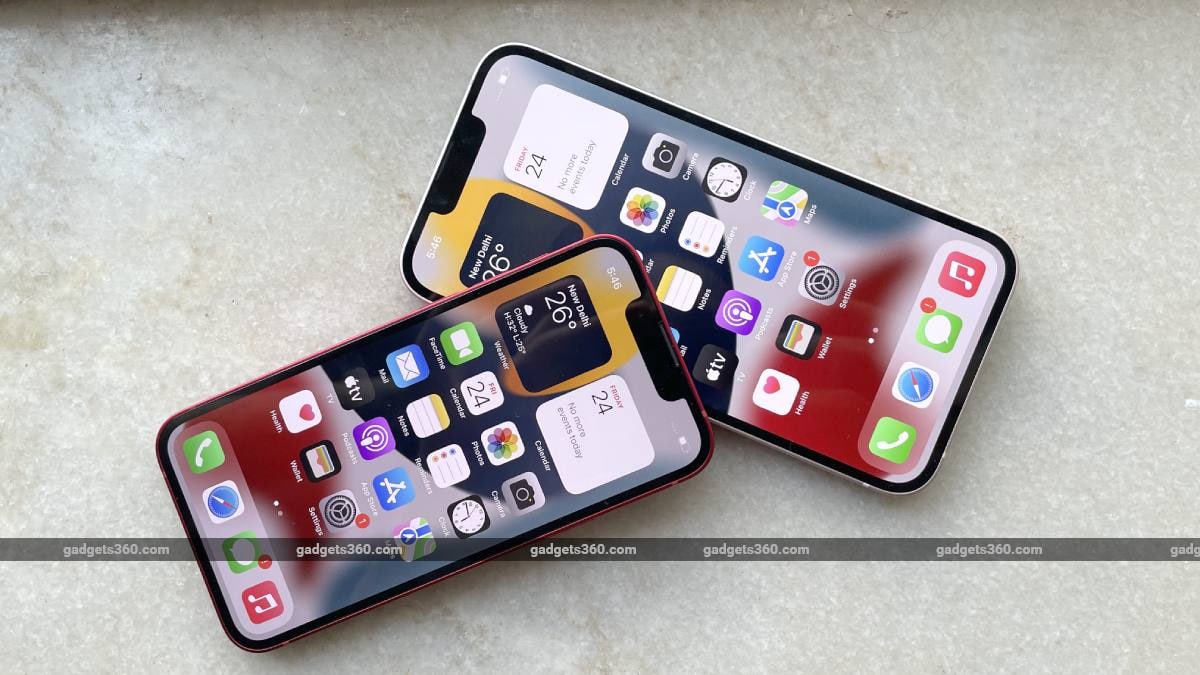Products You May Like
Apple was the most popular smartphone manufacturer in terms of worldwide smartphone shipments for Q4 2021, according to a report by market analyst firm Canalasy. The Cupertino-based smartphone manufacturer took the first spot from competitor Samsung, and accounted for 22 percent of global smartphone sales in the last quarter despite supply chain issues, and rising coronavirus cases around the world. Meanwhile, Chinese smartphone manufacturers Xiaomi, Oppo and Vivo were in third, fourth and fifth places, with 12 percent, 9 percent and 8 percent market share, respectively.
According to a report by Canalys, Apple finally managed to beat Samsung for the top spot in the smartphone shipments competition, thanks to strong demand for the iPhone 13 series. “Apple saw unprecedented iPhone performance in Mainland China, with aggressive pricing for its flagship devices keeping the value proposition strong,” the report states. The company’s supply chain was also affected due to the pandemic leading to production cuts (and increased waiting times in some markets) but appears to be recovering, according to the report.
| Vendor | Q4 2020 Market Share | Q4 2021 Market Share |
|---|---|---|
| Apple | 23% | 22% |
| Samsung | 17% | 20% |
| Xiaomi | 12% | 12% |
| Oppo | 10% | 9% |
| Vivo | 9% | 8% |
| Credit: Canalys |
According to the report, Samsung was in second place and accounted for 20 percent of worldwide smartphone shipments in Q4 2021. The South Korean smartphone maker has shown an improvement compared to Q4 2020, when it accounted for 17 percent of global smartphone shipments. Meanwhile, Xiaomi was in third place with 12 percent of handsets sold worldwide. Oppo and Vivo took fourth and fifth place with 9 percent and 8 percent respectively, according to the report.
Back in December, Bloomberg reported that Apple had informed suppliers it did not expect customers to maintain interest after long wait times for the company’s latest iPhone 13 series. The report suggested that the Cupertino company expects supplies to improve in 2022. Apple previously cut iPhone 13 production plans by 10 million units, thanks in part to the global chip shortage that has resulted in a shortage of iPhone components, according to an older report by Bloomberg.
The global semiconductor shortage appears to be affecting companies other than Apple, and the Canalys report states that smartphone manufacturers are adapting to the difficulties posed by the component shortage that is not expected to improve until the second half of 2022. Smartphone makers are reportedly modifying their device specifications to adapt to available components. Moves like prioritising best-selling smartphones and spreading out product releases over longer periods will help bigger firms tide over the challenges posed by the semiconductor shortage, according to the report.
